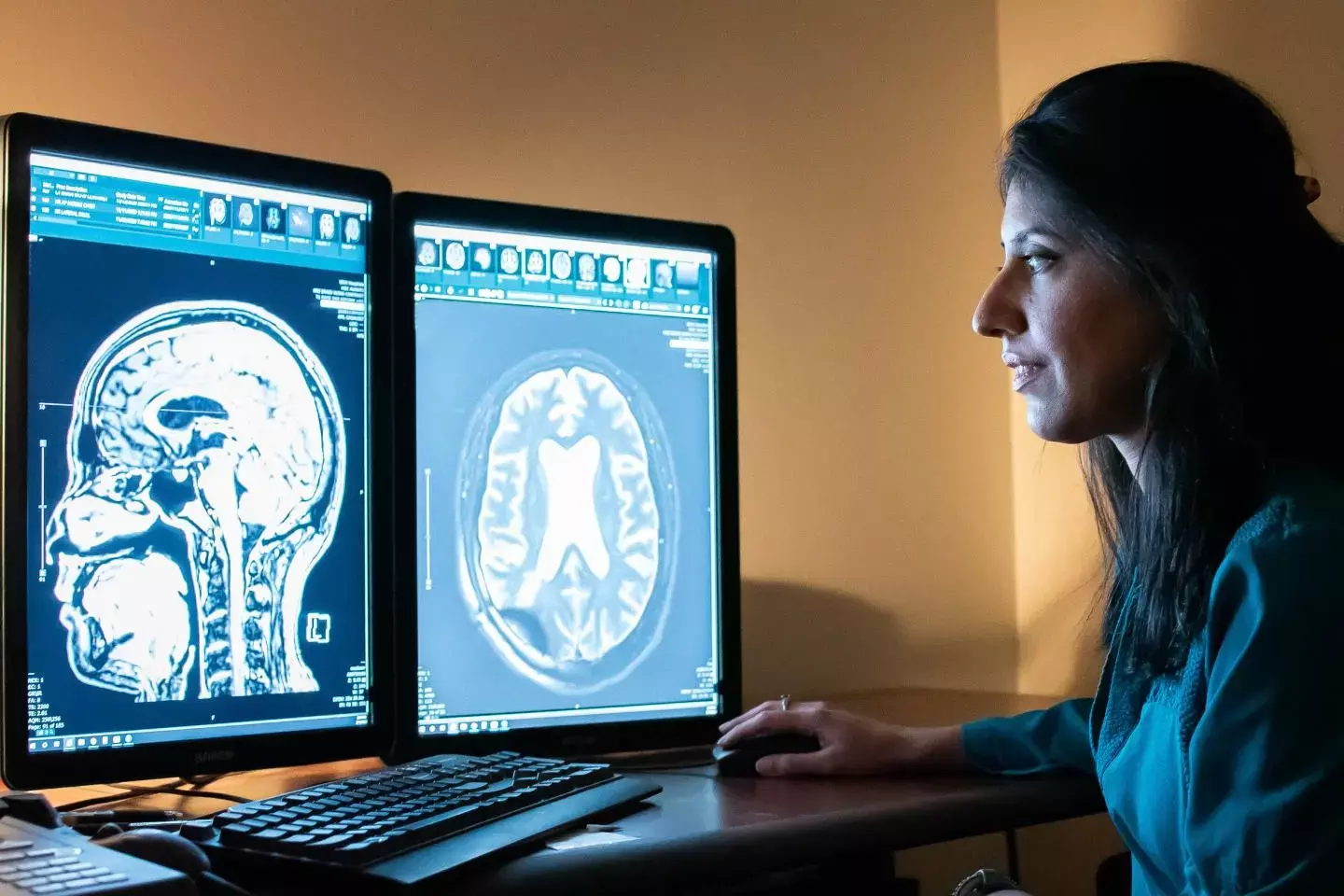- Home
- Medical news & Guidelines
- Anesthesiology
- Cardiology and CTVS
- Critical Care
- Dentistry
- Dermatology
- Diabetes and Endocrinology
- ENT
- Gastroenterology
- Medicine
- Nephrology
- Neurology
- Obstretics-Gynaecology
- Oncology
- Ophthalmology
- Orthopaedics
- Pediatrics-Neonatology
- Psychiatry
- Pulmonology
- Radiology
- Surgery
- Urology
- Laboratory Medicine
- Diet
- Nursing
- Paramedical
- Physiotherapy
- Health news
- Fact Check
- Bone Health Fact Check
- Brain Health Fact Check
- Cancer Related Fact Check
- Child Care Fact Check
- Dental and oral health fact check
- Diabetes and metabolic health fact check
- Diet and Nutrition Fact Check
- Eye and ENT Care Fact Check
- Fitness fact check
- Gut health fact check
- Heart health fact check
- Kidney health fact check
- Medical education fact check
- Men's health fact check
- Respiratory fact check
- Skin and hair care fact check
- Vaccine and Immunization fact check
- Women's health fact check
- AYUSH
- State News
- Andaman and Nicobar Islands
- Andhra Pradesh
- Arunachal Pradesh
- Assam
- Bihar
- Chandigarh
- Chattisgarh
- Dadra and Nagar Haveli
- Daman and Diu
- Delhi
- Goa
- Gujarat
- Haryana
- Himachal Pradesh
- Jammu & Kashmir
- Jharkhand
- Karnataka
- Kerala
- Ladakh
- Lakshadweep
- Madhya Pradesh
- Maharashtra
- Manipur
- Meghalaya
- Mizoram
- Nagaland
- Odisha
- Puducherry
- Punjab
- Rajasthan
- Sikkim
- Tamil Nadu
- Telangana
- Tripura
- Uttar Pradesh
- Uttrakhand
- West Bengal
- Medical Education
- Industry
Transcranial direct current stimulation improves post-stroke dysphagia: Study

Chandigarh’s PGI Builds India’s Largest Unified Neurology and Neurosurgery Facility
CREDIT
Caylie Silveria/West Virginia University
China: The height and considerable positive impact of transcranial direct current stimulation (tDCS) on improving post-stroke dysphagia were recently established by a new study published in Archives of Physical Medicine and Rehabilitation.
Dysphagia is a frequent side effect of stroke, which can cause people to cough when drinking water and raise the risk of aspiration pneumonia, which can cause malnutrition and asphyxia-related mortality. Because it is noninvasive, safe, and portable, transcranial direct current stimulation, a brain stimulation device, is utilized as a nondrug intervention treatment for several neurologic or psychiatric illnesses. According to studies, targeted deep brain stimulation (tDCS) can alter the motor function and psychophysiological processes. In order to assess the clinical effects of tDCS on post-stroke dysphagia using a meta-analysis, Na Zhao and colleagues conducted this review.
Up to June 2021, databases from PubMed, Cochrane Library (CENTRAL), Web of Science, VIP, CNKI, and Wanfang were carefully searched for this study. For evaluation, randomized controlled trials (RCTs) on the effects of tDCS on post-stroke dysphagia were considered. Author, location of publication, date of publication, sample size, demographic data (such as age, stage of disease, and location of stroke), key elements of bias risk assessment (such as RCTs and blind methods), interventional measures, tDCS treatment methods (stimulation location, intensity, duration), pertinent outcome indicators, and pertinent data were all extracted (SDs). The Physiotherapy Evidence Database Scale and the Cochrane Risk of Bias Assessment Tool were used to evaluate the risk of bias.
The key findings of this study were as follows:
1. This meta-analysis comprised sixteen RCTs. Overall, the findings showed that the pooled impact size was substantial and statistically significant.
2. For the chronic phase group, the subgroup that examined the course of the illness had a substantial and significant effect size. 1 mA and 1.6 mA of the stimulation intensity displayed moderate and substantial effect sizes.
3. The afflicted hemisphere exhibited a significant outcome in the subgroup analyses when compared to the unaffected hemisphere, and stimulation of the affected hemisphere had a more pronounced impact.
4. tDCS was beneficial for dysphagia following unilateral hemisphere stroke, bulbar paralysis, and brainstem stroke but not for dysphagia following ataxic and basal ganglia stroke.
5. However, the stroke location subgroup analysis produced a significant finding.
In conclusion, the Authors found that anode tDCS had a better impact on post-stroke dysphagia. Although these techniques have recently been studied with various patient demographics, bigger multicenter RCTs with clinically significant outcomes are required for a thorough evaluation of the efficacy of each technique.
Reference:
Zhao, N., Sun, W., Xiao, Z., Fan, C., Zeng, B., Xu, K., Liao, M., & Lu, W. (2022). Effects of Transcranial Direct Current Stimulation on Poststroke Dysphagia: A Systematic Review and Meta-analysis of Randomized Controlled Trials. In Archives of Physical Medicine and Rehabilitation (Vol. 103, Issue 7, pp. 1436–1447). Elsevier BV. https://doi.org/10.1016/j.apmr.2022.03.004
Neuroscience Masters graduate
Jacinthlyn Sylvia, a Neuroscience Master's graduate from Chennai has worked extensively in deciphering the neurobiology of cognition and motor control in aging. She also has spread-out exposure to Neurosurgery from her Bachelor’s. She is currently involved in active Neuro-Oncology research. She is an upcoming neuroscientist with a fiery passion for writing. Her news cover at Medical Dialogues feature recent discoveries and updates from the healthcare and biomedical research fields. She can be reached at editorial@medicaldialogues.in
Dr Kamal Kant Kohli-MBBS, DTCD- a chest specialist with more than 30 years of practice and a flair for writing clinical articles, Dr Kamal Kant Kohli joined Medical Dialogues as a Chief Editor of Medical News. Besides writing articles, as an editor, he proofreads and verifies all the medical content published on Medical Dialogues including those coming from journals, studies,medical conferences,guidelines etc. Email: drkohli@medicaldialogues.in. Contact no. 011-43720751


